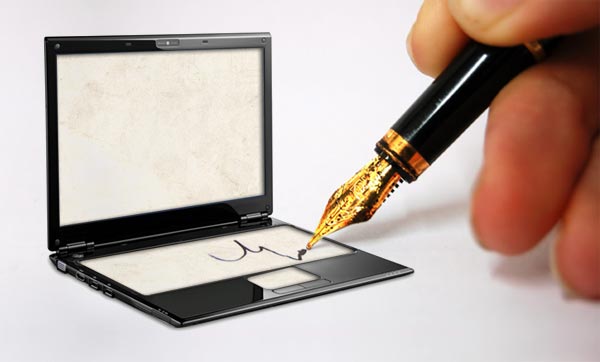
You have a web presence. You have a product or a service to sell. You need to create awesome web pages that will elicit a response… You need to know how to write for the internet.
It’s a devilishly difficult skill to master. I’ve been doing it for five years and still consider myself a novice. Here’s what I’ve learnt so far:

Grab the reader’s attention
Your readers are extremely time poor. You need to solve a problem of theirs quickly and effectively.
- The most important points should be made in the first few lines of paragraphs or directly under subheads.
- Headlines should be short, direct and eye-catching.
- The text itself should be scannable (with short paragraphs, loads of subheads, use of numbered and bulleted lists, bolded words, links, images, etc.)

Practice and test
The skill of internet writing comes with practice and testing.
- Use Google Analytics to see which of your web pages are the most popular and ask yourself why.
- Use Twitter and see which tweets are retweeted and/or answered the most.
- Use social bookmarking sites like StumbleUpon and Digg to see which headlines work best.
- Use Google Keyword Research to find out which phrases are being regularly searched for. This will tell you what people are interested in.

Hone your blog writing process
- Keep ideas books Have paper and pencils/pens in every room of the house, at work and on your person every minute of the day. Every time an idea comes into your head, quickly write it down.
- Don’t start writing in a browser Start writing on in a text editor like Word or TextEdit (Mac) or on paper. Don’t start to write in the WordPress text editor — that’s a real creativity killer.
- Copy the formatted text (with embolden and italicized words) and paste into the WordPress Visual editor (the formatting will be kept). Click “Save Draft” on the right-hand side of the WordPress editor. You’re not ready to “Publish” yet. Not by a long way!
- Work on tidying, editing and adding graphics to the text in WordPress. Check progress by clicking the “Preview” button which will open a version of your blog post before it is published.
- Repeat this process multiple times. Read and re-read the Preview version in one tab whilst making corrections in the WordPress editor in the other tab.
Every sentence that you read in this article I will have re-read back to myself at least ten times.

Don’t write crap
We all do it. It’s time we stopped. Here is a great guide to writing well where I took the following quote and advice:
“Never use a long word where a short one will do.” (George Orwell)
- Be as clear as you can
- Avoid the passive voice “He was seen by Joe” should be “Joe saw him.”
- Use orthodox spelling, punctuation, and capitalization
- Avoid qualifiers: a bit, a little, sort of, kind of, rather, quite, very, too, pretty much, in a sense.
- Avoid long words when short ones will do: Assistance = help; implement = do; referred to as = called.
- Avoid laborious phrases. Why use “at the present time” when you can use “now”?
Go to Copyblogger for further internet writing advice.
Conclusion
This is what I’ve learnt while writing online. But I’m sure there’s more out there. Have you got any tips for writing effective web copy?
Also, if you have enjoyed or learnt something from this article, you could tweet, like or vote using the buttons below.

Great advice Rob. I can remember writing a load of rubbish once on an earlier blog, but we all learn from our mistakes!
BTW, you’ve included the “Avoid qualifiers” sentence twice 😉
D’oh, I absolutely knew I was going to make some sort of a mistake in a blog post where I make a big point about re-reading your blog posts!
I think we all made mistakes when we first started – but no one was visiting anyway!
Great post and a great set of reminders. I don’t think I can be reminded of the basics too much. I’m trying something new – putting close to 20 hours in one ONE article that, in the graphic design niche, I’m hoping will generate substantial traffic over time. That’s a far cry from “I need a post” and hitting publish 24 minutes later 🙂 The 24 minute posts never did anything anyway!
Excellent article rob. A great reminder indeed. I like the “Don’t write crap” part 🙂 I also agree that we should start with a pen and a sheet of paper. Not only in writing but also for designing graphic or web projects.
I’ve written an article on how to write effective copy for Web Designer. Maybe someone will find it useful enough to read.
http://www.joptima.com/topic/how-to-write-effective-copy-on-the-internet-for-web-designers/
Thanks again Rob
Hello Douglas, good to see you here again. I’m looking forward to reading your “pillar” article very much. It’s good to put some effort into a real definitive piece. 20 hours – wow! Should be good! Maybe one day I’ll spend 20 minutes making a video and posting it but I’m not that confident to do that at the moment. Like Andrew said, I used to write some really lame posts in about 20 minutes but that was when nobody read my blog!
Hello Ayman, thanks for the link. I remember reading that one, good post! All the best!
This is one of the best blog posts on the subject of web writing I’ve ever seen. Truly well done.
Web writing is as important as SEO and graphics. Some even believe more so.
It is the voice, the right pitch optimal for web reading – that will influence the person whether to buy your product not. Or whether to make contact or phone you. Nice one!.
Great advice Rob. I’m been blogging for about a year now and reading through your points gave me some tips on how to improve my site. I initially started as a hobby but now I found something I really enjoy and with some of your tips, I might just keep with it.
Hello Henry, thank you so much for your kind words. Yes, I agree, web writing is a hugely important subject.
Hello Jahnavi, if you enjoy it, I would definitely advise you to continue. I’ve always enjoyed blogging – but I’m not sure why! Thank you for your comment.
Enjoyed your article. I think your advise was valuable and I learned that I really don’t like the word ‘learnt’ in place of ‘learned.’
Thank you, actually I prefer ‘learned’ instead of ‘learnt’ as well. Even worse is using ‘advise’ when it should be ‘advice’. Sorry, couldn’t resist!
Very nice blog you have here. i really enjoy the content and promise to return soon. It’s a little late here in NYC but it was worth the search to find you.
My site is not like yours but i think it’s worth what i’ve put into it and what it looks like now.
Thanks, Michael